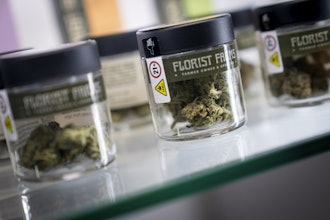
Recent findings indicate that medical cannabis consumption can improve the quality of life for those who could not find reprieve from traditional methods, according to a large online study conducted by Realm of Caring, a cannabis nonprofit advocacy organization, and researchers at the Johns Hopkins University School of Medicine.
The study's results, published in Frontiers in Pharmacology, showed that medical cannabis helped mitigate various neurological disorders and pain-related ailments that were impacting participants.
“Realm of Caring takes part in IRB-approved (Institutional Review Board) research to ensure we are truly helping individuals to improve their quality of life,” said Sasha Kalcheff-Korn, Executive Director for Realm of Caring. “This research spotlights several concerns that we actively address, such as providing information to the medical community, partnering with quality product companies for more affordable options, and providing free one-on-one support to alleviate unwanted side effects. Realm of Caring will continue to collect and publish data to ensure we fulfill our mission.”
Study participants who consumed medicinal cannabis were invited to complete anonymous surveys to provide feedback about their experiences. Of the 808 study respondents, 77% reported positive effects — with 28% citing reduced pain, 18% noting improved sleep and 22% experiencing reduced anxiety.
The study participants also described many of the issues they face as medical cannabis patients — such as difficulty in finding adequate providers who know how to dose cannabis, what strains are most helpful to alleviate specific ailments and which consumption methods work best with their treatment plan. Regarding patient concerns, commonly reported problems included lack of information for medical cannabis support (with 16% of participants citing this concern), as well as 12% reporting prohibitive costs as an additional apprehension.
This qualitative study allows medicinal cannabis consumers to tell their stories in their own words and provide insight into the daily benefits and challenges that they face. With the increasing access to medicinal cannabis, this research provides a meaningful contribution to help inform and educate policymakers, patients and healthcare providers about this industry’s rapidly evolving landscape.






















